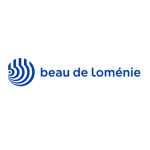Jurisprudence has had fixed rules for a long time on the reconditioning of pharmaceutical products by parallel importers, without the consent of the trade mark owner.
The reconditioning must not affect the original condition of the product. The presentation of the product must not harm the image of the brand and its proprietor. If there is new packaging, it must clearly indicate the person who carried out the reconditioning and the product. Finally, the importer must notify the trade mark owner of the future sale and provide him with, on request, a specimen of the reconditioning.
These conditions allow the trade mark owner to maintain some control over the distribution of his products by parallel importers.
New opportunities for the parallel market are now offered by a decision recently rendered by the Court of Justice of the European Union (CJEU) (decision of the CJEU, May 17 2018 C-642/06).
In this case, the parallel importer added a new label on the pharmaceuticals to permit their importation. The trade mark owner opposed this commercialisation insofar as the importer failed to inform him about this reimport and the new packaging adopted.
The Court noted that in all cases until then the reconditioning had required the opening of the original packaging. Here, the packaging had not been modified, nor the original presentation affected.
The Court made the following points:
(i) the importer had limited himself to affixing an additional label on an unprinted part of the packaging, which had not been opened;
(ii) this label was small and included only the name of the parallel importer, its address and telephone number, a barcode and a pharmacological number.
As a result, affixing such a label did not contravene the trade mark holder's rights, and the parallel importer was not obliged to inform the trade mark holder of his action.

|
Aurélia Marie |
Cabinet Beau de Loménie
158, rue de l’Université
F - 75340 Paris Cedex 07 France
Tel: +33 1 44 18 89 00
Fax: +33 1 44 18 04 23











